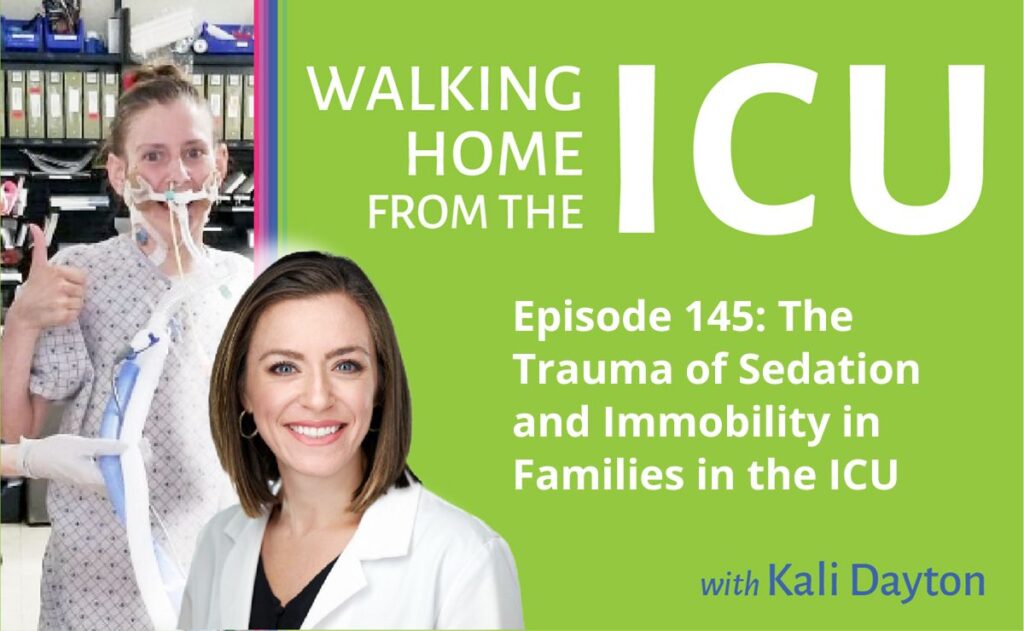
Walking Home From The ICU Episode 145: The Trauma of Sedation and Immobility in Families in the ICU
Sedation and immobility impact more than patient outcomes in the ICU. Family members also suffer the isolation, burden, trauma, and loss from sedation and immobility in and after the ICU. Families are also at risk of developing post-ICU syndrome themselves. Nonetheless, they are left unprepared to care for their loved ones who are suffering the
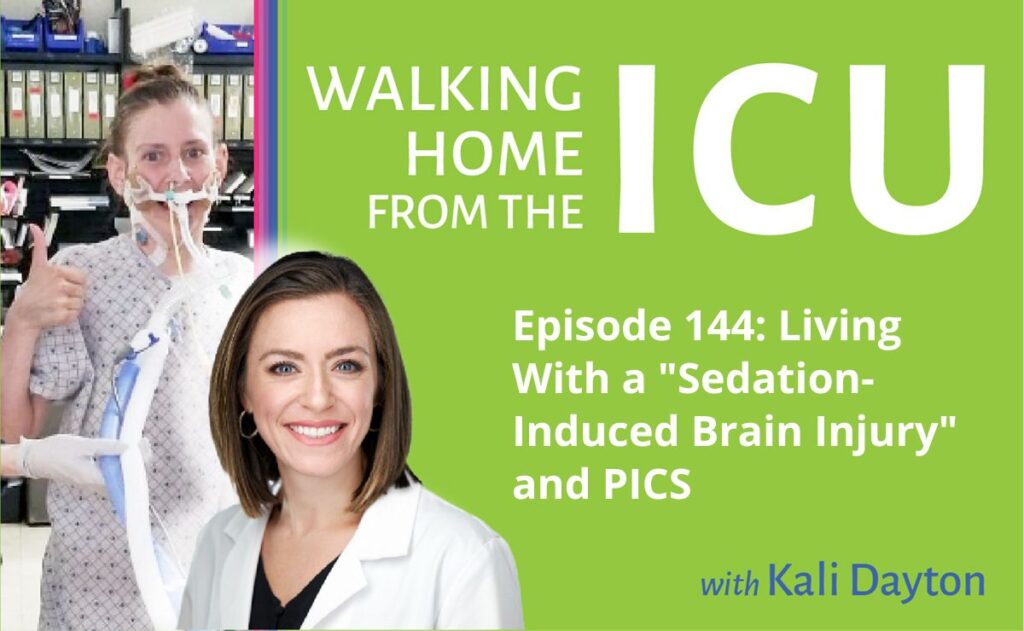
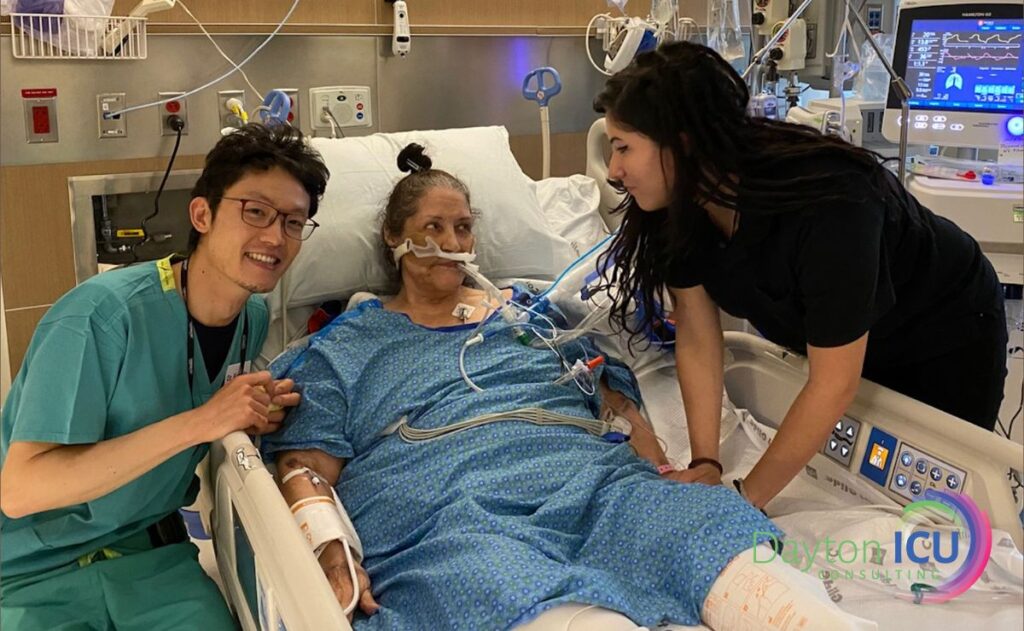
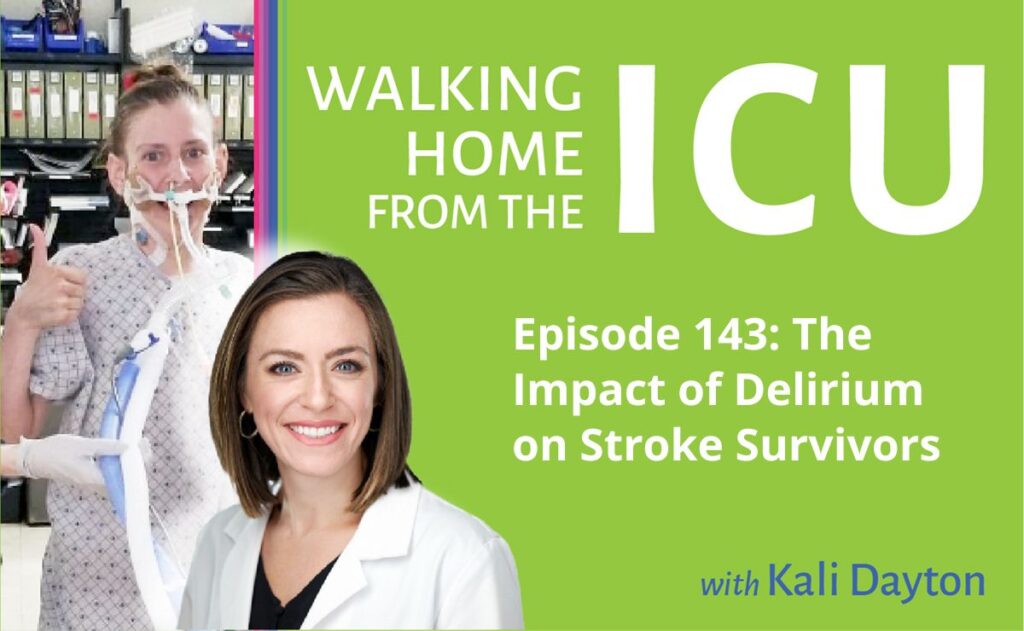
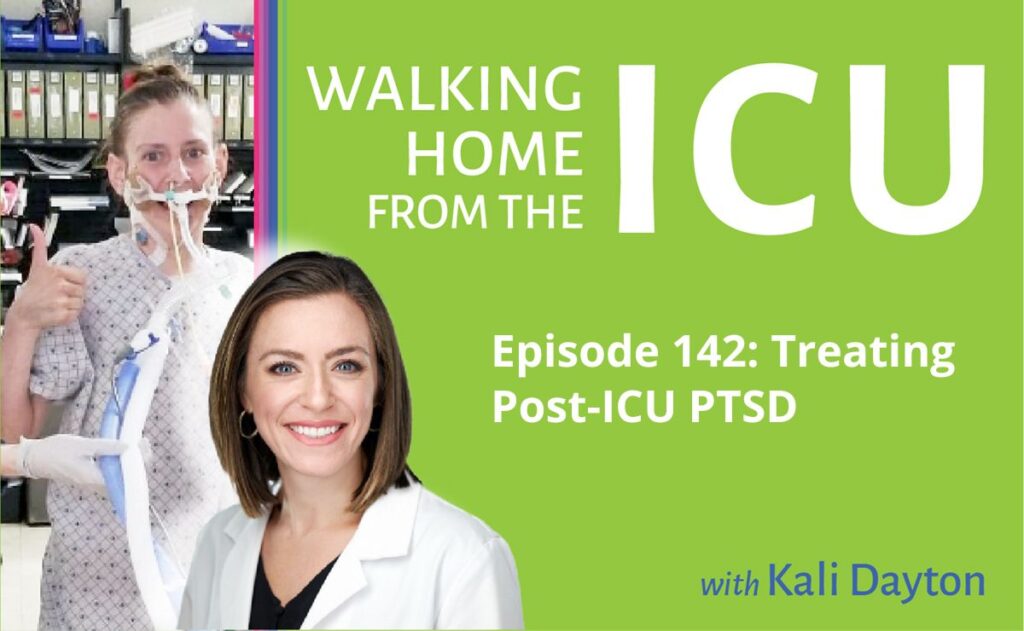
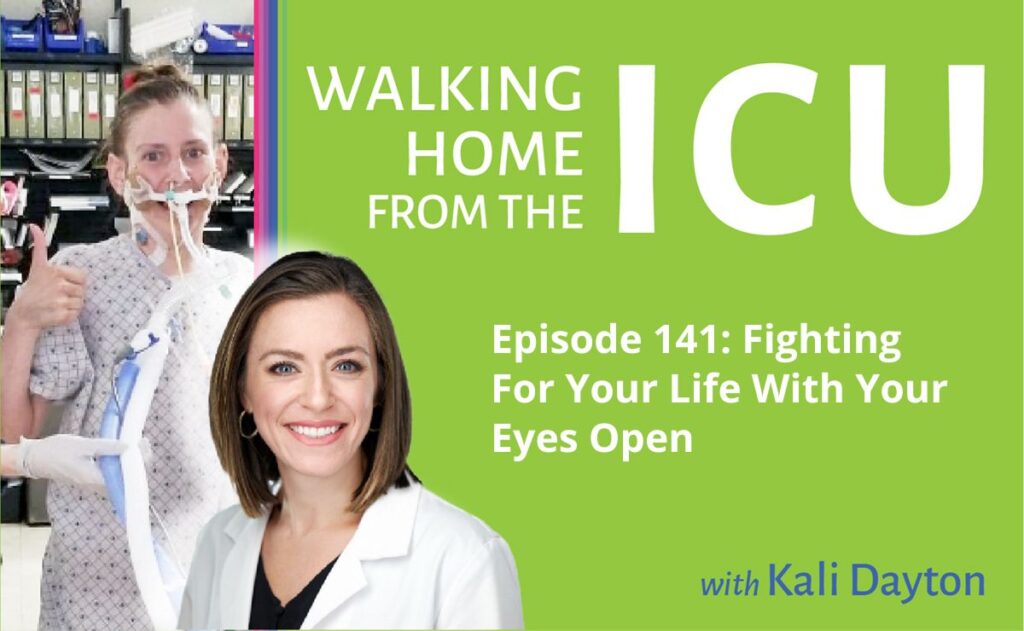
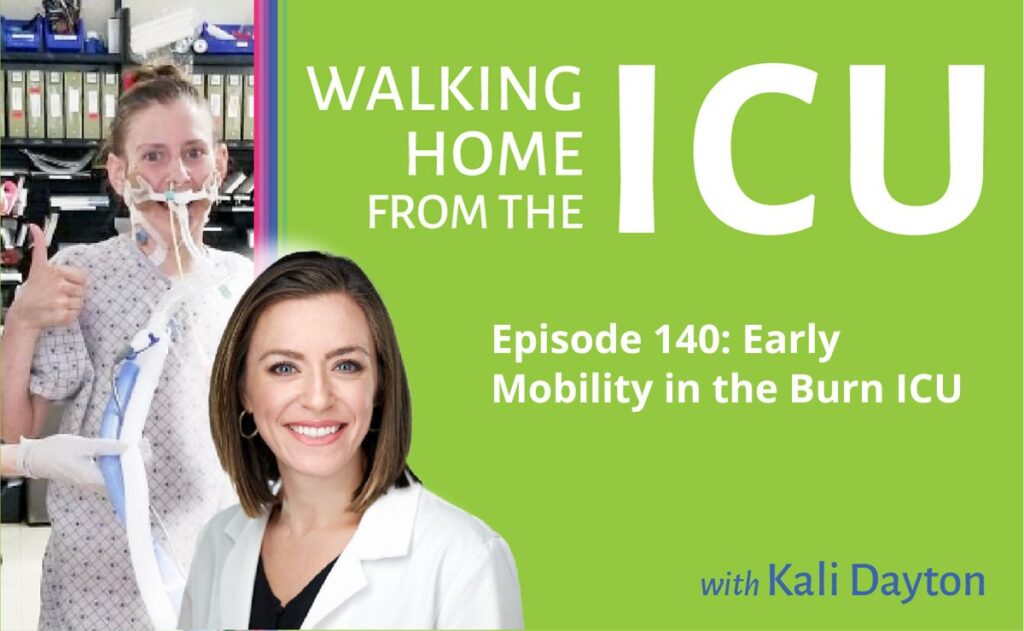
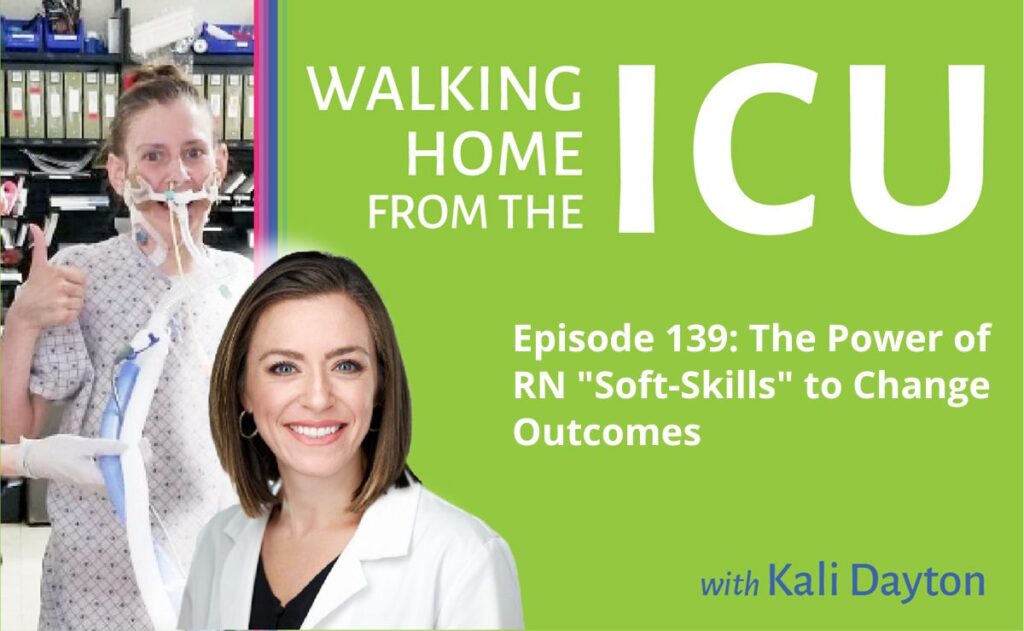
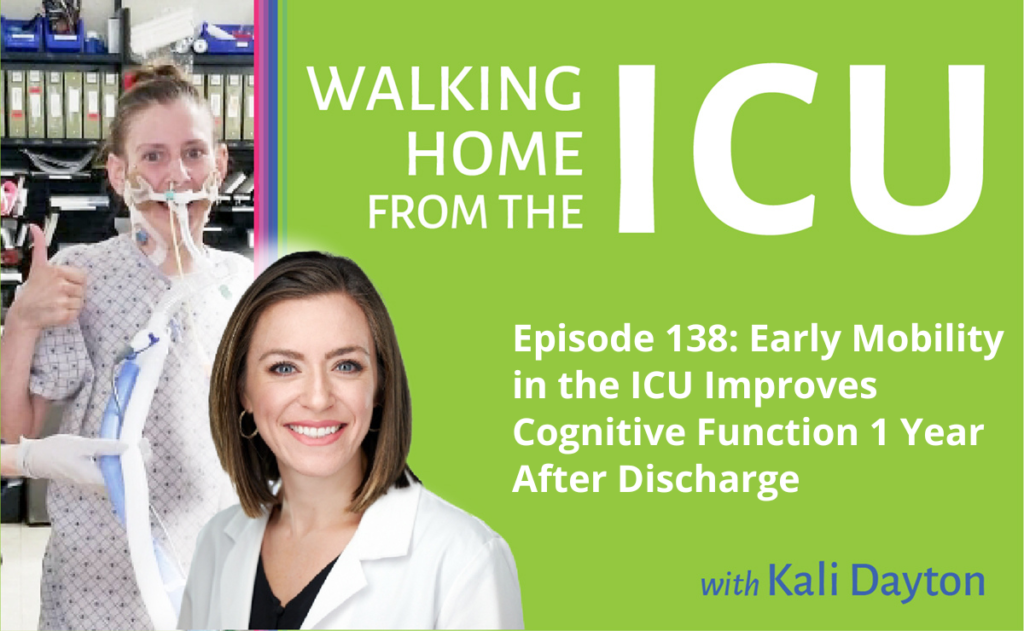


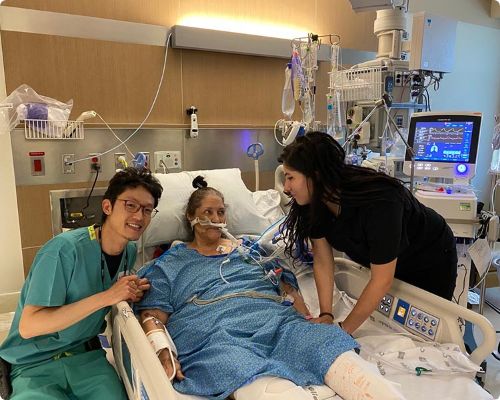 I stumbled upon Kali’s podcast midway through my anesthesia critical care fellowship in February 2021. At our institution, I got the impression that patients in the ICU either got better on their own or had a prolonged and complicated course to LTAC or death. In her podcast, Kali explained that LTAC was rarely the outcome for patients in the Awake and Walking ICU in Salt Lake City.
I stumbled upon Kali’s podcast midway through my anesthesia critical care fellowship in February 2021. At our institution, I got the impression that patients in the ICU either got better on their own or had a prolonged and complicated course to LTAC or death. In her podcast, Kali explained that LTAC was rarely the outcome for patients in the Awake and Walking ICU in Salt Lake City.
